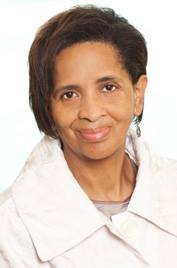The Meaning of Chow
/By Kelli Korducki
“I'm not male. Not white. Want to start there?”
This was how, in an April Twitter chat, Olivia Chow fielded a question from Toronto Star reporter Daniel Dale on how she might politically distinguish herself from the Miller years. A non-answer on the policy level, Chow's response touched on questions that had been bubbling since well before she announced her candidacy.
From the moment city chatter settled into election mode—roughly sometime between Crackgate and early 2014—there was speculation over whether Chow could rally the Chinese communities in Scarborough and North York to tip the vote in her favour. As Ethnic Aisle contributor Simon Yau pointed out in Toronto Life, Ford's fiscal conservativism can be an appealing sell for practical-minded Chinese immigrants like his parents, who prioritize hard work and self-sufficiency over expanding municipal services through tax hikes. But Yau explained his parents weren't necessarily opposed to voting for Chow: “She's Chinese,” he noted, “and that may be enough.” Maybe something as simple as ethnic solidarity would bring a definitive end to any hope of Ford More Years.
And so we have Chow: the only not-male, not-white frontrunner for the mayoralty. As of the most recent polls, it looks increasingly likely that she'll be bested in this race by the very male, and quintessentially white John Tory.
The scare-quoted “ethnic vote” is something we've touched on here at the Ethnic Aisle, in the context of white candidates clumsily trumpeting inclusivity in exchange for ballots. But the meaning of the term changes when the candidate in question is herself an ethnic minority, for whom being “down” with ethnic communities is perhaps more than an obligatory performance.
While Chow hasn't explicitly positioned herself as a minority candidate (how that would even take shape is anybody's guess), her first major campaign fundraiser was held at a dim sum banquet in Scarborough, where Chinese community leaders sung her praises to a receptive crowd using both Cantonese and Mandarin. Chow also adopted Toronto's newly introduced 437 area code in order to secure a triple-eight number sequence in her campaign's official phone number; in Chinese culture, the number eight, and triple eights especially, are seen as arbiters of good fortune.
And yet there has been little talk of Chow potentially becoming Toronto's first non-white mayor, or what that would signify for the ethnically diverse city she would represent. In the meantime, the “anyone but Ford” cabal is evacuating her camp faster than if a hurricane personally knocked on every one of their front doors. Maybe she's too progressive or not progressive enough; maybe it's a question of charisma. Or, maybe—and here we can all share a communal wince—it's “not-white, not-male” that's the sticking point. Slurs have been hurled (“Go back to China!” at a recent debate by a Ford-supporting heckler); her accented English hasn’t gone undiscussed. Still, there's no real way of knowing whether Chow's ethnicity has helped or hindered her mayoral campaign. We can only presume that it's done both, and almost certainly one more than the other, but we're left to gut feelings and educated guesses to determine which—and, well, neither one of these research methods is exactly scientific.
What we do know is that the past four years—the past Ford years—have been a boon to bigotry. We're well beyond the point of pretending the mayor has any possibility of redeeming himself from his demonstrated misogyny, his racism, his homophobia. These behaviours have left a starker stain on the Ford mayoralty than his obstinacy or self-destructive appetites.
Worse than the unflattering light they've cast on our entire city, the past four years have been shot through with the kind of hatefulness that's viscerally painful to confront head-on. Whether or not we were complicit in Ford's election, we were all unwittingly signed up for his reality show in 2010. It's easier to avert the collective gaze than to dwell on the magnitude of Ford's ignorance, and the stranger-than-fiction plot points of his reign have done a good job of distracting from its ugliness.
Chow is the anti-Ford, and not only because she occupies a space on the opposite end of the political spectrum. The reality is much grimmer: as a woman of colour, she is the embodiment of all that our mayor disregards. Her sheer personhood defies the politician a majority of voters selected to represent our city four years ago. That's a tough pill to chew, and an even tougher one to swallow.










